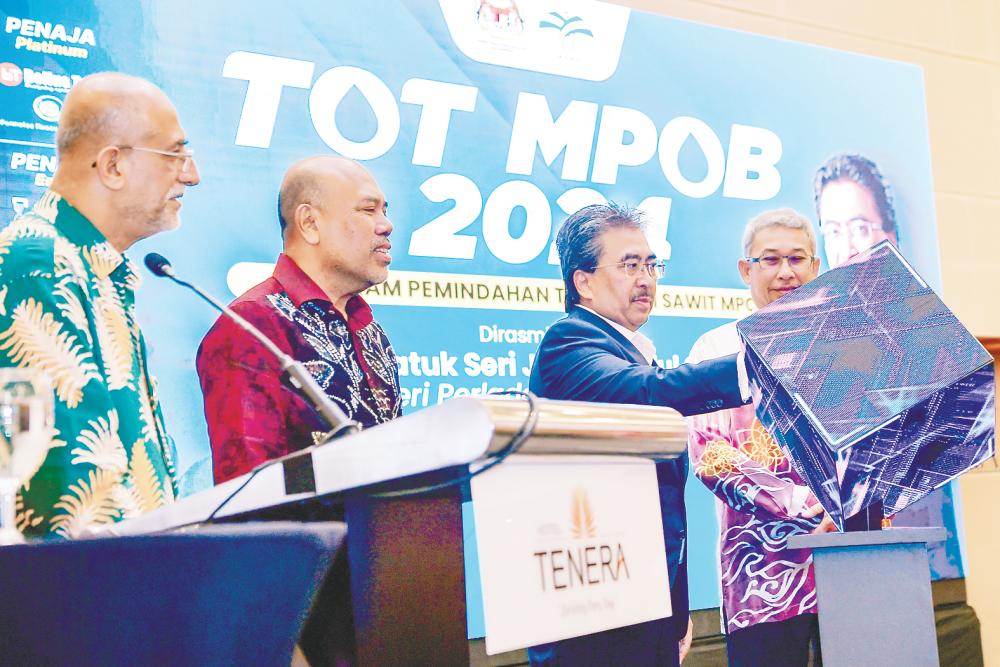BANGI: The competitiveness of Malaysia’s palm oil industry is at stake if the windfall tax is not revised, said Plantation and Commodities Minister Datuk Seri Johari Abdul Ghani.
“If we don’t revise this windfall tax, it will make our palm oil products, which compete with other countries, such as Indonesia – the number one palm oil producer in the world, and we are number two – less competitive,” he told reporters after officiating the 30th Malaysian Palm Oil Board Transfer of Technology Seminar and Exhibition today.
Johari noted that when the government initially imposed the windfall tax, the cost of producing one tonne of palm oil was RM1,800.
“But today, the cost has increased significantly. It has reached almost RM3,000. For large companies, the cost is around RM2,800. For smaller companies, it might be up to RM3,200. So on average, about RM3,000,” he explained.
Johari added that revising the tax could indirectly encourage replanting, making Malaysia’s palm oil more competitive and attracting more investment in the available 5.7 million hectares of land for replanting and increasing yield.
Therefore, his ministry will submit the decision to the Ministry of Finance (MOF) for review.
“That is my task with the ministry, with the secretary-general. We will present this to the MoF to ensure they understand the importance of encouraging replanting so that our products are more competitive and yield higher returns,” he said.
During the question and answer session in the Dewan Rakyat on Tuesday, Johari suggested reviewing the windfall profit levy (WPL) on palm oil in Budget 2025, in line with commodity prices.
In Budget 2022, the government changed the windfall tax for local palm oil producers to a standard 3% when crude palm oil (CPO) prices exceed RM3,000 per tonne in Peninsular Malaysia and RM3,500 per tonne in Sabah and Sarawak. Previously, the tax was 3% when CPO prices were RM2,500 per tonne or more in the peninsula, and 1.5% when prices were RM3,000 per tonne or more in Sabah and Sarawak.
At the event yesterday, six new technologies were launched – the Clonal Palm Series 4 oil palm breed; the radio-controlled hydrostatic flail mower farm machinery; and four oleochemical product innovations, namely palm-based food grade biodegradable grease, Palm-based industrial liquid cleaners, palm-based glue for household and plantation pest control and palm-based transformer oil.
Johari launched the commercialisation of two products – Walbac Eco-Friendly Biological Pesticide and MPOB Fertiliser Formulations F2 and F6.
In addition, MPOB signed five memorandums of understanding covering the commercialisation of MPOB fertiliser formulations, palm-based grease formulation, endophytic bacteria liquid for Ganoderma (a type of fungus) control, and technology transfer for the production of oriented strand board composition.
Johari also launched ‘MPOB TECH’ as a registered trademark to ‘endorse’ all commercialised MPOB technologies.
MPOB TECH represents MPOB’s branding with the reputation for technological innovations as a government research agency in the oil palm industry.
“The use of the MPOB TECH logo elevates the brand development of products and services from MPOB research, development, and innovation,” MPOB said in a statement.









